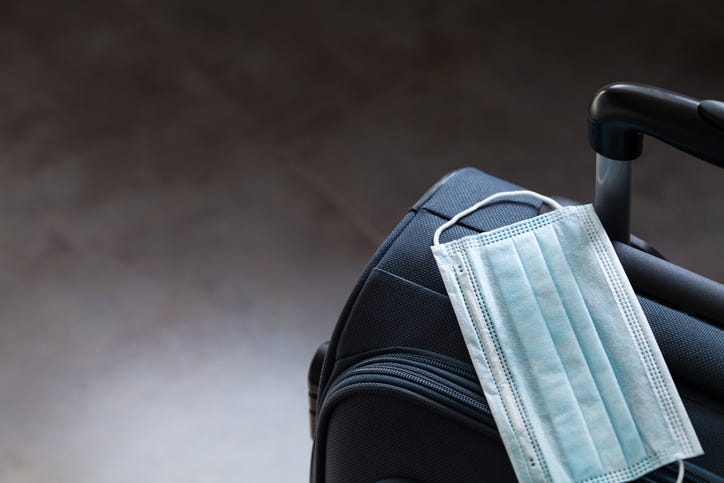
Travelers have had to make a decision following the ruling from a federal judge in Florida last week that struck down the federal mask mandate for transit. Now, it's: To mask, or not to mask?
Last Monday, the ruling from the judge struck down the federal mandate requiring masking in airports, on public transportation, and on domestic flights. On Wednesday, the U.S. Justice Department appealed the ruling, but there has been no decision to reinstate the mandate yet.
Now, after over a year of wearing them, passengers need to decide whether or not they will continue to don a mask.
At Minneapolis-St. Paul International Airport work commenced on taking down signs and other adages announcing the mandate began almost immediately, like other airports across the country.
But still, a spokesman for the airport, Jeff Lea, shared that just because masks aren't mandatory doesn't mean they are going away.
"We still have a segment of travelers and visitors and employees that I think are going to feel much safer continuing to wear masks," Lea said.
The announcement of the end of the mandate showed an almost 50-50 split between those who wanted the mandate and those who didn't.
Lea shared that around half of the travelers were wearing a mask the day after the mandate was struck down, and half were not.
The same sentiment was shared among passengers as well, as Jesse Festa, who was traveling when the mandate was struck down, shared with CNN that while she took her mask off to celebrate with others on her flight, she quickly put it back on.
When deciding whether or not to mask, the decision was simple for Festa. She hadn't been sick while wearing a mask when traveling and wanted it to stay that way.
"The ability to enjoy my trips without feeling ill majorly outweighs the slight discomfort of having cloth on my face," Festa told CNN.
This seems to be the case for many Americans who plan to continue to mask up even without it being mandatory.
Others like Benét J. Wilson, a 58-year-old frequent flier, shared she too has had a reduction in her allergies and colds while masking on flights. So now, she has decided to stay masked for the foreseeable future.
"I'm allergic to dust and pollen. My allergies were especially bad on airlines with cloth seats," Wilson said. "I firmly believe that my N95 mask kept me safe from irritants on planes that would cause my allergies to flare up."
This decision has the backing of some health experts too. For example, the World Health Organization has shared in the last week that everyone should continue to wear masks in public to reduce transmission, even when they aren't mandated.
"The use of masks is still recommended," Dr. Ciro Ugarte, the director of health emergencies at the Pan American Health Organization, a regional arm of the W.H.O., shared, The New York Times reported.
The decision to appeal the ruling out of Florida also came at the recommendation of the CDC.
The importance of the type of mask being worn plays a big part in whether or not to mask as well. Epidemiologist Dr. Michael Osterholm has discussed this for months as mask mandates have been rolled back with COVID-19 cases falling.
"Facecloth coverings or surgical masks actually do little to reduce transmission of a virus-like omicron," Osterholm said. "So from that perspective, I don't support mandates of masking if you're using inferior protection."
But the doctor has said that this doesn't mean he doesn't support masks. On the contrary, he says that high-quality masks will offer strong protection for anyone who would like it.
"On the other hand, if you're using good protection, that's a very different situation, and I very strongly support [it]," Osterholm said.


